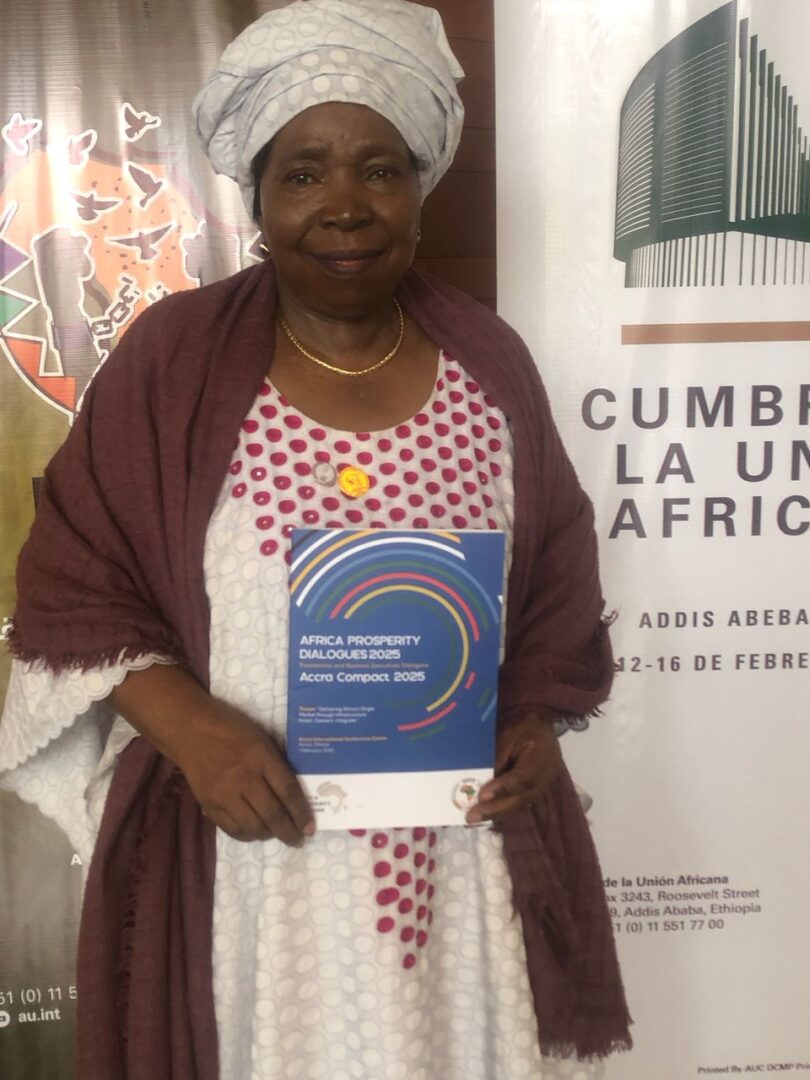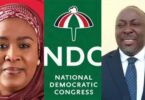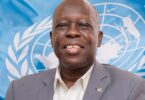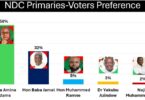Source: Business Desk
The outcome document, the Compact, from the 2025 edition of the annual Africa Prosperity Dialogues (APD) 2025, held in Accra, Ghana, from Thursday, 30 January to Saturday, 1 February 2025, has been distributed at the 38th African Union (AU) Summit in Addis Ababa, Ethiopia, which took place from Saturday, 15 to Sunday, 16 February 2025.
The 44-page Compact, which encapsulates a transformative agenda to accelerate economic integration, advance strategic infrastructure development, and unlock Africa’s full economic potential, was reached through enthusiastic discussions and a call for immediate action to advance Africa’s aspiration for a single market through the African Continental Free Trade Area Agreement (AfCFTA).
The dialogues brought together over 2,500 leaders from 47 countries across Africa and the global African diaspora participated at the APD 2025. The APD2025 Compact is the overarching outcome of the dialogue representing a renewed sense of commitment and cooperation among African leaders and global stakeholders.
The APD2025 Compact
The APD2025 Compact is the outcome of APD 2025 under the theme Delivering Africa’s Single Market through Infrastructure: Invest, Connect, Integrate. Speaking to the press, Sidig El Toum, CEO, Africa Prosperity Network (APN) stated “This landmark document sets out a collective vision for Africa’s economic growth and prosperity, structured around five transformative pillars: financing for strategic infrastructure, transport and logistics integration, energy security and power integration, digital transformation, and social infrastructure”.
The explanation of the compact five pillars is as follows:
1. Transport and Logistics Integration
This pillar emphasises the implementation of the Single African Air Transport Market (SAATM) and addresses the 30-40% cost premium currently impacting intra-African trade. It advocates for comprehensive air service liberalisation and the execution of Africa’s Integrated Maritime Strategy 2050.
2. Energy Security and Power Integration
This pillar addresses the widespread power reliability challenges affecting over 30 African nations by advocating for interconnected power grids and harmonised regional energy policies. It highlights strategic multibillion-dollar projects such as the Grand Inga Dam for hydropower and the exploration of solar energy potential in the Sahara and Kalahari Deserts.
3. Digital Transformation
Building on the AU Protocol on Digital Trade and the report Scaling Up Interoperability for Economic Integration: Using Mobile Money to Buy and Sell Across Africa, the APD 2025 Compact establishes a five-year roadmap for achieving Pan-African mobile system interoperability.
It prioritises investments in broadband infrastructure, e-commerce platforms, and unified regulatory frameworks to accelerate digital trade. The Compact calls on heads of state, policymakers, regulators, and stakeholders to commit to:
a. Ensuring all member states join the Pan-African Payment and Settlement System (PAPSS) by 2027.
b. Enhancing cross-platform integration using the Ghana interoperability model to ensure seamless transactions between mobile money accounts, banks, and other payment channels by 2027.
c. Enabling cross-border mobile money interoperability across all AU regional blocs and within every member state by 2030.
4. Healthcare and Social Infrastructure
This pillar focuses on strengthening healthcare systems through increased domestic pharmaceutical production and digital health solutions, including integrated mobile payment and insurance platforms. It also calls on governments to prioritise STEAM education to equip young Africans with entrepreneurial and employable skills to leverage AfCFTA opportunities.
5. A-Dollar-A-Day Infrastructure Fund
The Compact introduces an innovative Integrated Africa Infrastructure Growth Fund, targeting the mobilisation of over $2 trillion in its first decade. This will be achieved through various strategies, including a retail-driven initiative encouraging contributions of a dollar a day.
Targeted investors include Africa’s growing middle class (including the global African diaspora), domestic capital markets, multilateral financial institutions, pension funds, insurance companies, and sovereign wealth funds, supported by streamlined regulations and risk mitigation mechanisms.
“If 100 million Pan-Africanists, including people of African descent and friends of Africa, commit to investing as little as $30 a month into a well-structured fund under the auspices of the AfDB and others, it could generate an additional $36.5 billion annually to finance the railways and roads that will comprehensively connect our continent from north to south and east to west,” said Gabby Asare Otchere-Darko, Founder & Executive Chairman of APN.
APD 2025
The APD is a call to action, mobilising leaders from both the private and public sectors to work collaboratively to drive economic growth, reduce poverty, and improve the lives of African citizens. The recently concluded APD 2025 was a resounding success. The dialogue addressed the continent’s critical challenges and industrialisation priorities, advancing commercial and infrastructural interventions to realise the vision of the Africa we want.
Day One (30 January): The event commenced with the opening of the Projet Afrique Exhibition, Breakfast Meetings, and the official opening ceremony, featuring international dignitaries. H.E. the Vice President of Ghana, Jane Naana Opoku-Agyemang, delivered the keynote address.
Day Two (31 January): Key discussions focused on sustainable energy solutions, digital infrastructure, manufacturing capacity, STEM education, healthcare systems, and sustainable urban development. Participants also engaged in an open forum on the theme, forming the foundation of the summit’s outcome document.
Day Three (1 February): The final day featured the High-Level Heads of State and Business Leaders’ Dialogue, culminating in a Presidential Roundtable discussion on policy frameworks for private sector participation in Africa’s single market. Three heads of state participated. The day concluded with a signing ceremony marking the collaboration between the AfCFTA Secretariat and BADEA, followed by the Africa Prosperity Champions Awards (APCA) and the Presidential Gala Dinner.
About APN
The Africa Prosperity Network (APN) is a private, non-profit organisation dedicated to advancing the vision of The Africa We Want, as outlined in the African Union’s Agenda 2063. It promotes Africa’s progress, independent of external aid.
The Africa Prosperity Dialogues series provides a strategic platform for leaders to move the continent’s economic integration agenda from ambition to tangible action, facilitating the implementation of AfCFTA initiatives and shaping the Africa Agenda for Action.
Source: www.thenewindependentonline.com








